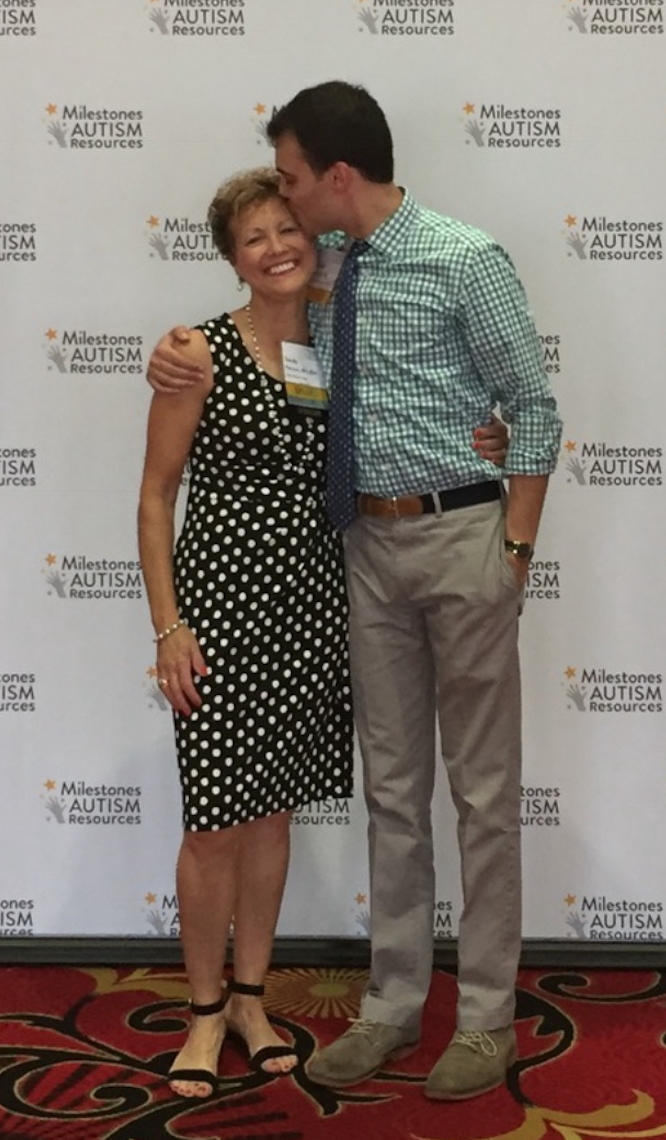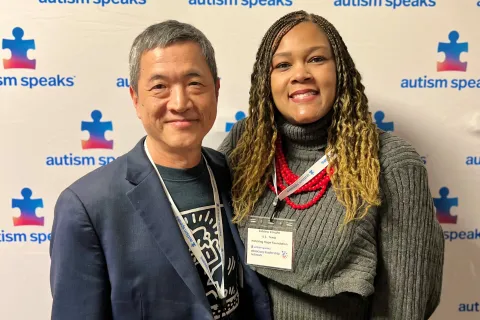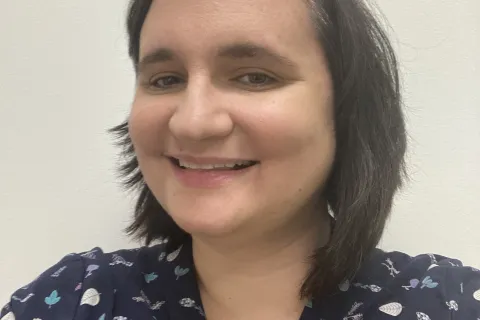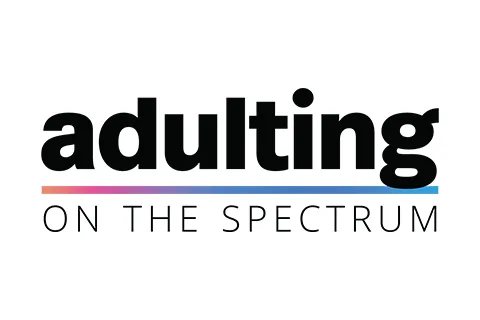Tips that helped my son transition out of school and to the workplace
By Sandy PetrovicThis guest blog post is by Sandy Petrovic. Sandy Petrovic is a registered nurse, an author, a public speaker, a college instructional advisor/tutor, and the mother of a son on the spectrum. For more about them and their book or presentations, click here.

Through motherhood and my tutoring position at a college academic support center for students with learning differences, I have gleaned several perspectives that I seek to pass on. Here is a vital one:
There is one thing about CHANGE that never changes: the need for transition.
Preparing for EVERY novel experience has made all the difference in David’s quality of life and confidence. And beyond competence in cognitive matters and personal skills, the increasing interactions and complexities of the academic and working worlds require additional planning and transitioning to result in optimal functioning.
When David transitioned from a special needs school to mainstreamed education in the eighth grade, I met with faculty to discuss his strengths, needs, and helpful accommodations. I also tutored Dave in several classes to help him learn in a way that he could comprehend. He weathered social and academic challenges, and consequently became more worldly, skilled, and independent.
We continued with comparable approaches for each school thereafter: a typical high school, a community college, and a baccalaureate program with on-campus living. Besides standard orientation days, we utilized informal preparations to assist with transitioning. We walked the class schedules together and he then repeated these independently. The same was true for learning bus routes (school bus, and later public transportation) and finding needed locations (the cafeteria, book store…). We developed strategies to keep Dave organized and decrease “forgetfulness,” and he took study skills courses to help with exams and paper writing. Life skills such as cleaning and laundry were incrementally added.
The key to David’s success in ALL schools was establishing balance, support persons, involvement in extracurricular activities, and utilization of accommodations and tutoring. Appropriate disclosures (when ready) and self-advocacy (slowly learned with coaching and practice) are part of this successful formula, as is a hard-working and motivated student. (Several chapters in our co-authored book are devoted to school/college transitioning).
David volunteered before seeking waged work positions. This eased him into learning necessary components: specific job skills, how to get help, co-operation with co-workers, and taking direction and/or critique. In his first paid summer job, Dave dealt with a supervisor’s unpleasant disposition and disclosed to a trainer his need to have skills explained—or demonstrated—in varying ways before he comprehended. These valued lessons can surely be applied in future situations to decrease employee/employer frustration and improve work relationships.

Dave was abruptly dismissed from his first student-teaching internship without explanation. Stunned and devastated, we used this opportunity to analyze every aspect of his performance. David deduced that he could benefit from learning chain-of-commands communication and “who to seek” for on-site advice. Addressing these and sensory work needs, we focused on navigating the professional work environment. Dave’s second student-teaching experience was so mutually beneficial that he was hired on as a teaching assistant. He actually appreciated the first, aborted internship for the perspective and improvement it enabled! Learn and grow from mistakes or misfortunes.
In David’s role as a teaching assistant, he found teacher and administrative mentors who helped him acquire the aspects of educating that cannot be learned in a classroom. He also successfully handled student discipline issues and parent communications. Needing flexibility for public speaking and graduate coursework after becoming a middle school teacher, David became employed as a substitute teacher at three different schools. This arrangement enabled experience with students of many ages, and colleagues with varied personalities and styles…a valuable combination to improve David’s flexibility, confidence, teaching skills, and navigation.
Together, the teaching assistant and substitute positions (including two long-term assignments) provided David with a customized transition that was critical for him to cross the professional threshold. Following the step-wise skill acquisition that has always worked for him (note his academic history), David is now seasoned and confident, and he is fully prepared to manage his own classroom. Resume and interview preparations were addressed and practiced in college and at home, and at 25 years of age, Dave has secured his first professional position as a junior high religion teacher in a diversely populated school: his dream job!
David has developed a unique teaching style and assembled the tools and supports necessary for him to shine in a role that he is passionate about and honored to take on. The extra time, effort, and transitional experiences were a stellar investment that will undoubtedly enhance his success!







